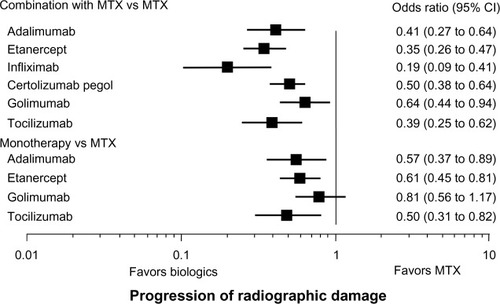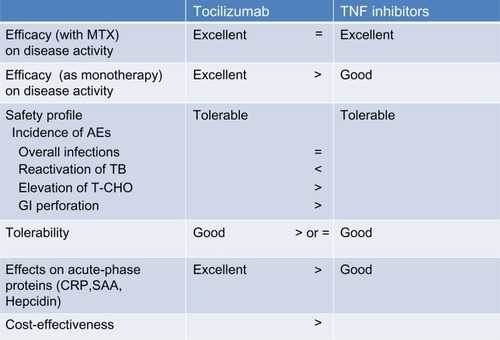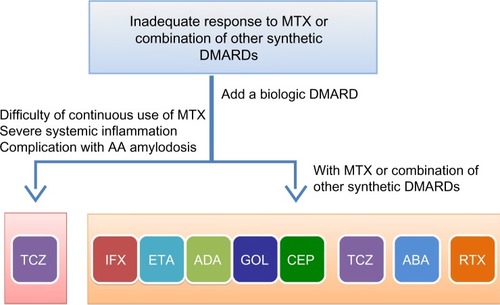Figures & data
Table 1 Characteristics of tocilizumab and tumor necrosis factor inhibitors
Figure 1 Indirect comparisons of the suppressive effects of tocilizumab and tumor necrosis factor inhibitors on radiographic damage.
Abbreviations: CI, confidence interval; MTX, methotrexate.

Table 2 Comparative tolerability of tocilizumab with tumor necrosis factor inhibitors
Figure 2 Properties of tocilizumab and tumor necrosis factor inhibitors in the management of rheumatoid arthritis.

Figure 3 Selection of biologic disease modifying antirheumatic drugs.
Abbreviations: ABA, abatacept; ADA, adalimumab; CEP, certolizumab pegol; DMARDs, disease modifying antirheumatic drugs; ETA, etanercept; GOL, golimumab; IFX, infliximab; MTX, methotrexate; RTX, rituximab; TCZ, tocilizumab.

